The views expressed in our content reflect individual perspectives and do not represent the authoritative views of the Baha'i Faith.
The recent shocking and senseless murders of nine African Americans at the Emanuel African Methodist Episcopal Church, the oldest AME church in the South, Charleston, S.C., have once again opened the festering wound of racism in America.
We both grew up in the Deep South, where segregation was a painful and evident fact. Black people and white people had their own sections of town, their own churches, schools, restrooms, drinking fountains, park benches. Meeting each other in the street, the blacks would typically defer to the whites by not making eye contact and holding their heads down. Racism—ever-present, ugly and overt—infected the lives of everyone.
“I vividly remember,” Nancy recalls, “as a very young child kissing Dolly, the African-American maid who worked for my grandparents, and fearing I would be punished for this act by my parents.”
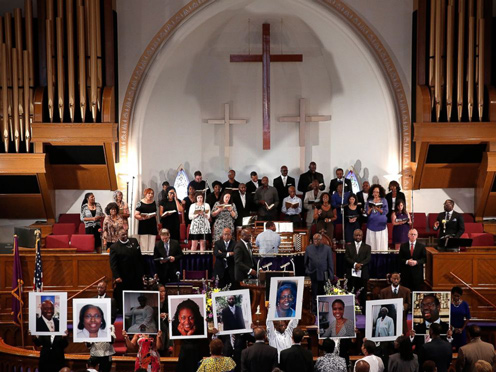
“I remember,” Barron says, “the stunning racial mixture when I started attending Baha’i meetings in the 1960’s — the first in Kokomo, Indiana, in which a white CEO of the Chrysler Casting Plant embraced racial unity; the other in Ft. Worth, Texas, where a General Dynamics executive actively supported mixed racial gatherings in his home. In those days and in those places, acts like that were radical expressions of the concept of racial unity.”
We may think, at least some of us, that we live in a “post-racial” society. Sadly, that isn’t true—in the United States, or anywhere else. As a country and as a world, we still have a long way to go. The Emanuel AME Church shooting shows us that incontrovertible fact, cast in stark relief.
What are the continuing consequences of race hatred between blacks and whites? Many people would probably answer that more violence and more social upheaval could result if our cultures can’t find ways to unify. But the Baha’i teachings portray the potential consequences of racial hatred as much more severe, telling us they could destroy America itself:
Until these prejudices [racial, political, religious, patriotic] are entirely removed from the people of the world, the realm of humanity will not find rest. Nay, rather, discord and bloodshed will be increased day by day, and the foundation of the prosperity of the world of man will be destroyed. – Abdu’l-Baha, Star of the West, Volume 7, pp. 120-121.
When I was in America, I told the white and coloured people that it was incumbent upon them to be united or else there would be the shedding of blood. I did not say more than this so that they might not be saddened. But, indeed, there is a greater danger than only the shedding of blood. It is the destruction of America. – Ibid.
Have we made progress? Living outside America for more than twenty years, we both noted some progress in the healing of race relations when we returned to the United States in 2013. Yet, as the recent Charleston events prove, we still have a long way to go. These Baha’i goals illustrate that distance:
I pray that you attain to such a degree of good character and behavior that the names of black and white shall vanish. All shall be called human… – Abdu’l-Baha, The Promulgation of Universal Peace, pp. 45- 46.
Therefore strive earnestly and put forth your greatest endeavor toward the accomplishment of this fellowship and the cementing of this bond of brotherhood between you. Such an attainment is not possible without will and effort on the part of each; from one, expressions of gratitude and appreciation; from the other kindliness and recognition of equality. Each one should endeavor to develop and assist the other toward mutual advancement. This is possible only by conjoining of effort and inclination. Love and unity will be fostered between you, thereby bringing about the oneness of mankind. For the accomplishment of unity between the colored and whites will be an assurance of the world’s peace. – Abdu’l-Baha, Baha’i World Faith, p. 269.
The Baha’i teachings balance these promises of the potential of racial unity with dire warnings about the consequences of maintaining a racist society. As early as the 1930’s, Shoghi Effendi, the Guardian of the Baha’i Faith, affirmed the necessity to change the heart and attitude underlying the American nation’s “ingrained racial prejudice”:
No less serious is the stress and strain imposed on the fabric of American society through the fundamental and persistent neglect, by the governed and governors alike, of the supreme, the inescapable and urgent duty — so repeatedly and graphically represented and stressed by Abdu’l-Baha in His arraignment of the basic weaknesses in the social fabric of the nation — of remedying, while there is yet time, through a revolutionary change in the concept and attitude of the average white American toward his Negro fellow citizen, a situation which, if allowed to drift, will… cause the streets of American cities to run with blood…” – Shoghi Effendi, Citadel of Faith, p. 126.
To avoid that terrible outcome, it’s up to us—all of us, no matter what color—to work to erase racism from our midst.


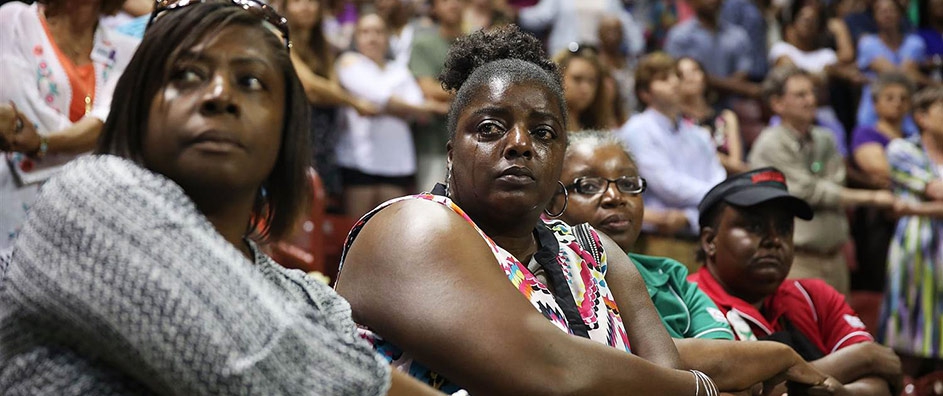

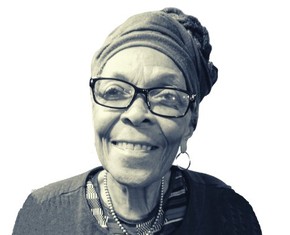
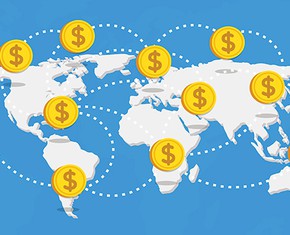
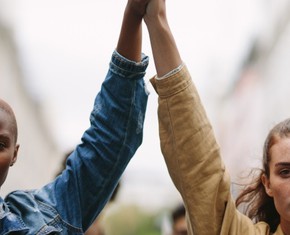





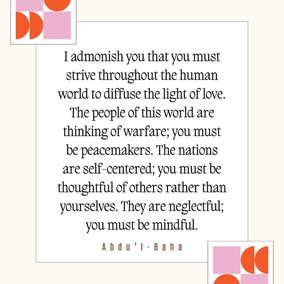
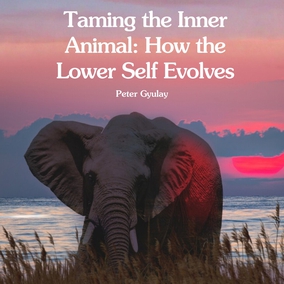
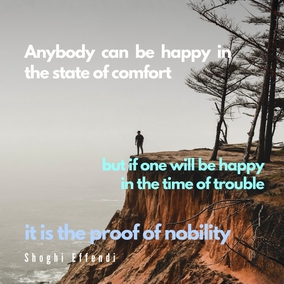

Comments
Sign in or create an account
Continue with Googleor